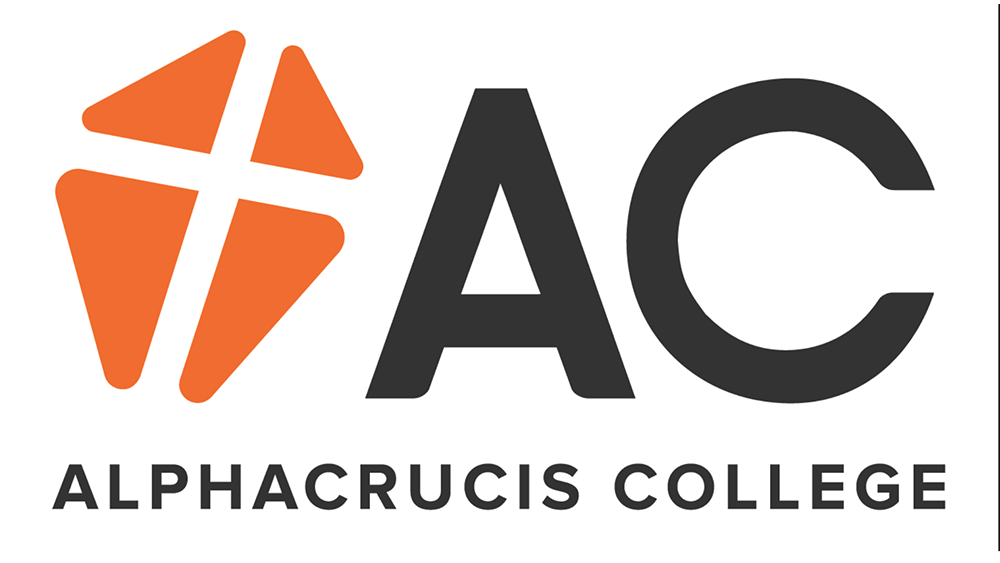Alphacrucis College recognised as Australia’s first Pentecostal University College
Alphacrucis College has been registered by the national tertiary accrediting body, TEQSA, as a University College. Alphacrucis, the training college for the Australian Christian Churches denomination, has been on a growth trajectory, expanding its teaching and research capacity in fields such as education and business.
This decision makes Alphacrucis College only the fourth University College in Australia, the first Pentecostal higher education institution of this level in Australia’s history, and the only Pentecostal institution in the university-affiliated categories in the Asia-Pacific region.
The Anglican Moore Theological College, alongside NIDA, the National Institute for Dramatic Arts and AFTRS, the Australian Film Television and Radio School were the first tranche of institutions granted the new University College status last year. Avondale, the Seventh Day Adventist college, was promoted to full university status at the same time.
TEQSA reformed the categories of higher education institutions last year with a new University College category added.
Alphacrucis has now joined its ranks. The President of Alphacrucis College, Professor Stephen Fogarty, sees this as fulfilling a vision that began over 70 years ago.
“Alphacrucis started as a small Bible college in 1948 to serve the training of Pentecostal ministers. Since that time, it has developed into the largest Protestant tertiary provider in the country. We deeply appreciate TEQSA’s review of our application which determined that we met the required standards and were deserving of this honour. We are excited to be bringing new energy, ideas and leadership into the Australian higher education sector at this significant time.”
Alphacrucis retains an ambition to achieve full university status. “Even with this significant achievement, Alphacrucis has no intention of slowing down,” Fogarty says. “Our vision is to ultimately be a global Christian University, transforming neighbourhoods and nations. This decision takes us one step closer towards that goal.”
In a statement, the TEQSA Commission says it “made this decision to recognise Alphacrucis after the presentation of new evidence, following a previous decision by TEQSA in July 2021, which satisfied the national higher education regulator that Alphacrucis College meets the standards for registration as a University College.”
TEQSA Chief Commissioner Peter Coaldrake said registration as a University College was granted only to institutions that deliver superior-quality higher education.
“TEQSA congratulates Alphacrucis College on achieving registration as a University College,” Professor Coaldrake said.
“In making our decision, TEQSA noted a number of the college’s strengths, including their demonstrated commitment to innovation in teaching and learning and strong engagement with industry and community.”
Alphacrucis College currently has around 4000 students enrolled around Australia in VET certificates, Bachelor, Masters and doctoral degrees across Business, Education and Theology. The main campus is in Parramatta NSW, with additional campuses in Melbourne, Brisbane, Perth, Adelaide, Hobart and Auckland. It is closely connected to industry and community and hosts six research centres: the Australasian Pentecostal Studies Centre (APSC), the Centre for the Future of Schooling (CFS); the Centre for Learning and Scholarship Skills (CLASS); the Jagelman Institute (JI); the Centre for Intercultural Research and Engagement (CIRE); and the Korean Diaspora Studies Centre.
The Pentecostal base of Alphacrucis gives it a largely untapped body of potential students. “This new recognition as a University College not only provides opportunities for domestic partnerships in schools, industry and vocational training but also opens the door internationally,” Fogarty said. “There are 125 million Pentecostal/Charismatic Christians in the Asia-Pacific alone, with no Pentecostal Universities. We hope this new category will help Australian faith-based higher education institutions engage with new educational markets within our regional environment.”
Email This Story
Why not send this to a friend?


